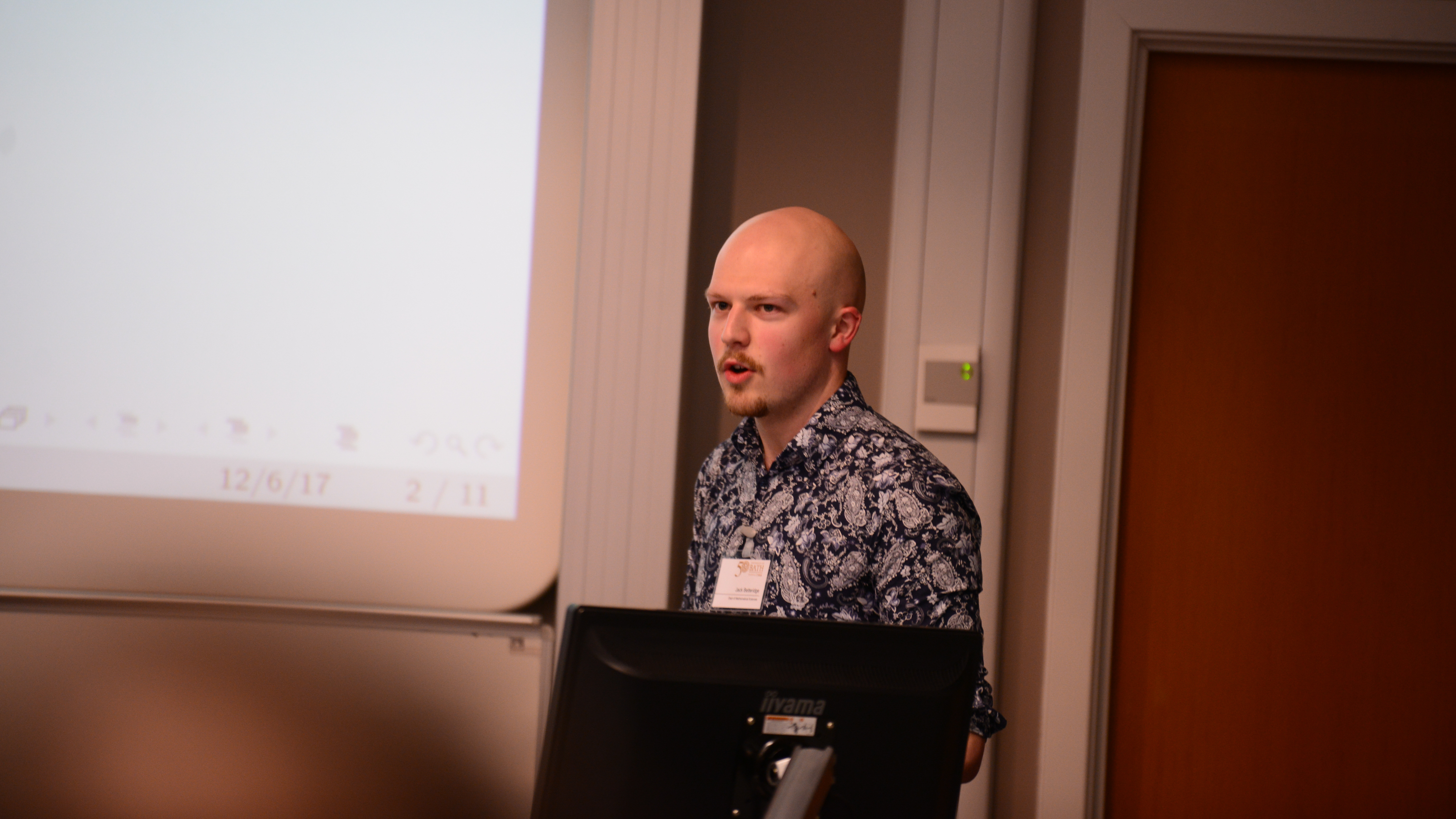Jack Betteridge is a PhD student in the Department of Mathematical Sciences working with Dr Eike Müller and Prof Ivan Graham on:
"Preconditioners for Higher-order Discontinuous Galerkin discretisations of elliptic PDEs on modern architectures and applications in atmospheric modelling"
Weather simulations depend on countless variables and require enormous computing power. Jack is looking at the feasibility of using modern mathematical techniques for numerically solving partial differential equations that are used to predict the weather.
High Performance Computing Symposium
The annual symposium at Bath brings together people from across the University to discuss how they use High Performance Computing (HPC) in their research. People with projects from many diverse research areas attended and presented their work on topics such as computational fluid dynamics, finite element analysis, materials and molecular interaction simulations. Any of these projects would take months to compile on a normal computer, but less than two days on the University's HPC computing system. On it, researchers can get through masses of data quickly, run many simulations in parallel and use special software to identify bottlenecks or bugs in their code.
In June 2017 Jack was invited to participate in Bath's sixth annual HPC Symposium where he showcased some of his work and how it integrates with the HPC facilities at Bath. He used Discontinuous Galerkin methods to compile a Numerical Weather Prediction and showed how those benefit from HPC. By using these methods, he is able to split his initial equations into many smaller components, which can all be solved simultaneously by the many computer processors of the HPC. Thus, his results provide high accuracy, making full use of the architecture available and without using more energy than needed. Using Balena, one of the HPC computing systems, he was also able to perform the visualisation of a weather simulation at the surface of Earth.
